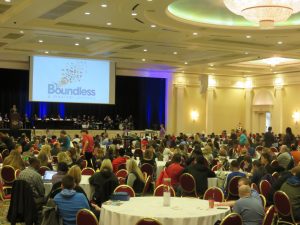DOVER, Del. – Governor John Carney on Wednesday announced the State of Delaware has implemented changes to mandatory bachelor’s degree requirements, among other criteria, for several positions to provide a pathway for more individuals to enter the state workforce. The Delaware Department of Human Resources (DHR) recently removed the bachelor’s degree requirement for critical positions within the Department of Services for Children, Youth and their Families and the Department of Health and Social Services, encompassing six Family Service classifications and impacting more than 350 positions.
In lieu of a bachelor’s degree, DHR will focus on related work experience. The department also simplified the application process to expand the applicant pool.
“These important and practical changes will expand our talent pool and give more qualified individuals an opportunity for a career in state government,” said Governor Carney. “By aligning job requirements with professional experience, and placing more attention on the skills of an individual candidate, we will better serve Delawareans.”
Specific changes include:
- Eliminating the mandatory bachelor’s degree requirement for certain state positions.
- Reducing the number of job requirements from five to one for a Family Service Assistant and the Family Service Specialist series, with the first entry-level position allowing for either experience or knowledge to expand the applicant pool.
- Applying an applicant’s experience or education throughout the remaining levels in the career series and reducing the number of job requirements.
“Over the past couple of years, DHR has been reviewing the bachelor’s degree requirement for hundreds of state positions in all state agencies,” said Claire DeMatteis, Secretary of the Delaware Department of Human Resources. “During the 1990s, the state added a bachelor’s degree requirement to dozens of positions, however, our review and practical experience show a bachelor’s degree can be an unnecessary barrier to employing otherwise qualified professionals.”
Since revising the job requirements for Family Service positions, DHR reported receiving four times the number of qualified candidates for these positions.
In addition to the changes for the Family Service positions, the state previously eliminated a mandatory bachelor’s degree requirement for 210 positions in the Probation Officer, Human Resource Advisor, and State Human Resource Analyst series. Overall, approximately 560 positions have been impacted by eliminating the bachelor’s degree. The state continues to conduct regular job description reviews to ensure that job requirements align effectively with the needs of the state’s workforce.
To explore career opportunities available with the state, visit statejobs.delaware.gov.
